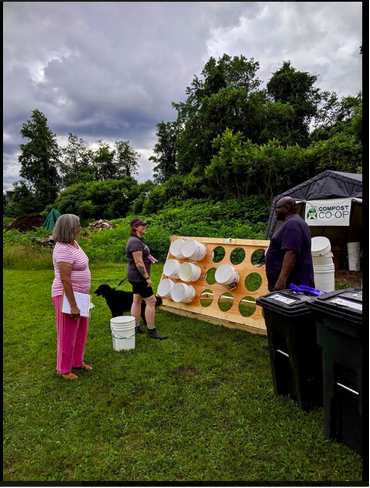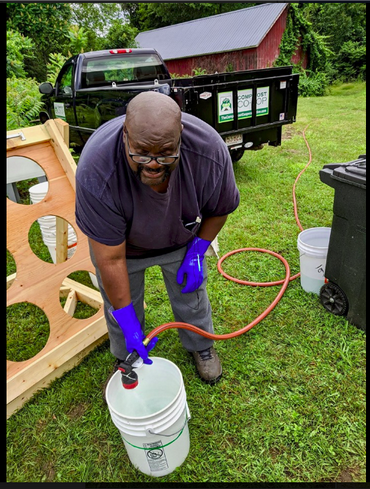You don’t have to dig deep to find startling statistics about the state of mass incarceration in the US. The issues run deep, have been around for hundreds of years, and the system is rotten no matter which way you look at it.
Outside of a small number of successful programs and initiatives, we are failing to support people as they re-enter society. The Bureau of Justice Statistics completed a 9 year study and found that 5 out of 6 state prisoners were arrested within 9 years of their release.
It is widely accepted that a lack of employment is a major factor in recidivism rates (reducing the rate of which people return to prison after they leave). In most states, you have to check a box on a job application if you have committed a felony. With a crowded field of applicants, this is usually enough to disqualify you from the start.
For the last five years, the TESA Collective has been running classes inside of the Franklin County House of Corrections in Western Massachusetts, in partnership with Greenfield Community College, to lead a class about worker-owned cooperatives. Through this experience, the need to develop meaningful jobs that paid a living wage became more and more urgent. Worker co-ops with individuals who have been formerly incarcerated can provide an excellent bridge towards a job, ownership, and meaningful employment for others who have experienced incarceration or are newly released.
What started as an intro to co-ops class, gradually morphed into a long-term co-op development project that culminated in a co-op academy inside the jail. The co-op academy laid the foundation for the creation of The Compost Co-op. A business plan was developed, market research was completed, a core group emerged, and the TESA Collective partnered with CDI to access funds through CDI’s RCDG grant to provide TA support to help get the co-op through the start-up phase.
With CDI’s USDA funding support, the last 18 months has been a time of growth and learning for the Compost Co-op. After the co-op’s initial round of market research, they settled on developing a commercial customer base before branching out into curbside residential pick-up. With one of the largest composting facilities in MA only 3 miles away, the Compost Co-op also found a supportive partner in Martin’s Farm, which does all of the compost production. In 2018, the co-op completed a successful crowdfunding campaign, purchased a truck and initial infrastructure, and in turn, focused on developing a core group of restaurant and food producing commercial customers.
Another major component of the start-up phase and TA support has been a focus on leadership development and training of formerly incarcerated apprentices on worker-owner track. Developing an ownership culture and cooperative business skills is often a major challenge for worker cooperatives, so we have put a major focus on this element during the start-up phase of the co-op.
After over a year of doing commercial pick-ups, the co-op just launched its residential curbside pick-ups in the town of Greenfield, MA. Currently, the co-op is using a pick-up truck for all of the pick-ups, though a goal for 2020 is to shift to bicycles and electric powered vehicles in an effort to meet their goals of environmental sustainability. Furthermore, the co-op is currently diverting 7-tons of organic matter from the landfill each month (the last landfill in MA is set to close this fall), and they aim to double that number in the coming year.
The co-op still has a lot of work ahead, and excellent progress has been made. The focus for the remainder of 2019 and 2020 will be to grow the residential pick-ups customer base, and to bring on 2 more apprentices on a worker-owner track. More than simply growing revenue, the main focus of the co-op is to provide ownership and wealth building opportunities to those who are often excluded. To that end, the co-op has already been successful, and is looking forward to years of growth ahead.


